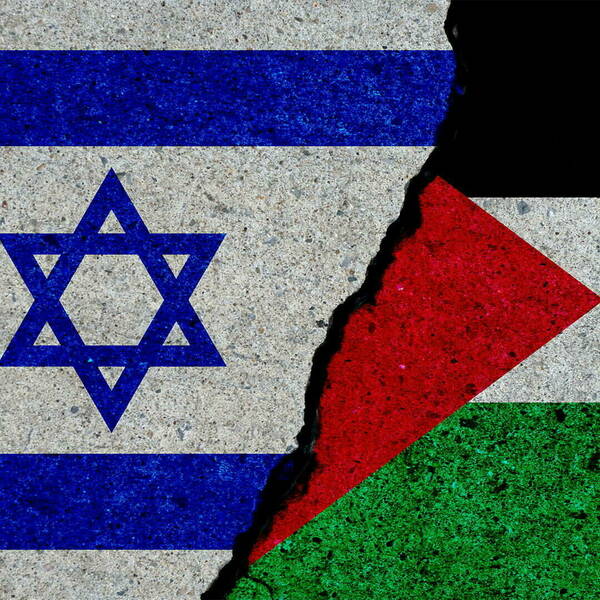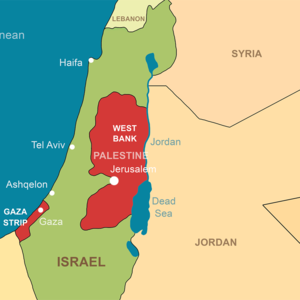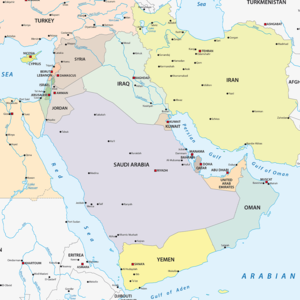
Hamas attacked Israel early on October 7th, killing some 1,400 people. So far, Israeli counter-attacks have killed perhaps 3,500 in Gaza. Hamas took 200 hostages. Due to Israeli lapses, Hamas’ well-planned massacre probably was more lethal than they could have ‘hoped.’ Why did they do it, and what risks does it pose?
Hamas likely had multiple motivations. While we don’t know if its backers in Iran, Qatar, Russia, and beyond knew of the attack in advance or signed off on it, they likely share these motivations. First, they wanted to derail apparent impending normalization of relations between Saudi Arabia and perhaps others in the region. Saudi Arabia and Iran are regional rivals, supporting opposing sides in the Yemen War, for example. Second, as Hamas’ sworn aim is to eliminate Israel and kill Jews, they may have wanted to scuttle any hopes there may have been for a two state solution. While a two state solution always faced long odds and those odds got worse under Netanyahu, they are now much worse after this attack. Ironically, Netanyahu supported Hamas to divide them from the Palestinian Authority in the West Bank and make agreement harder. All that said, if such a solution were achieved, Hamas’ relevance would plummet.
Third, they may have wished to draw Israel into a prolonged counter-attack, subjecting Israel to growing condemnation from many corners of the world, as daily reports of civilian deaths spread. As Thomas Friedman reported in the New York Times, Israel’s strategy may be to “outcrazy” Hamas.[i] This means many dead Palestinians. On the other hand, Hamas’ strategy may be to try to trade Palestinian lives for Israel’s isolation. Prolonged or not, the inevitable Israeli counter-attack also allows for the killing of additional Jews. Fourth, maybe Hamas thought that a large attack would help boost its profile and political power, and make a statement against Israeli treatment of the Palestinians - even if it seems improbable that even more suffering by Palestinians would help make their case. Finally, these motives are not mutually exclusive and they are shared by Hamas’ backers.

What are some of the risks that result from this conflict? First, there have already been some clashes between Israel and Hezbollah toward the North of Israel. Hezbollah is also backed by Iran. Hezbollah has up to 150,000 rockets and 2000 UAVs that could be used to attack Israel, swamping Israeli air and missile defenses and opening up a two front war.[ii]
Second, the US (and others) could be drawn into a broader war, either in defense of Israel, and / or in defense of itself. A US warship shot down missiles heading towards Israel, and US bases in Syria and Iraq have repeatedly been attacked by drones. Threatening as this is, a wide-scale attack by Hezbollah would make these actions seem mild.
Third, the US may decide the time has come to attack Iran. In addition to likely complicity in the firing of missiles and drones just mentioned, Iran supports and helps arm Russia against Ukraine. The US State Department lists Iran as “the leading state sponsor of terrorism.”[iii] US relations with Iran have been conflictual since the hostage crisis at the end of Carter’s presidency.
Iran is further warming to an ever-hardening anti-US alignment: “With Tehran’s accession to the Shanghai Cooperation Organization in September 2022, the influential Iranian newspaper Kayhan celebrated what its editors described as a newfound convergence among “the three great powers” — Russia, China, and Iran.”[iv]

Iran harasses the US Navy and attacks shipping in the Persian Gulf. Iran fuels conflicts in Lebanon, Iraq, Syria, and Yemen, generally siding against factions the US favors. Iran unjustly imprisons Americans, essentially taking them hostage. Finally, Iran’s nuclear program is a threat to the US, Israel, and the West. Although it attacked under the influence of 9/11, the US invaded Iraq with far less provocation. If the US attacks, the Israelis and perhaps others will help, Hezbollah will furiously attack, much death and destruction will follow, and risks of further escalation and spread will increase.
Fourth, the Israel-Hamas war presents two windows that may prolong or help initiate conflicts. To the extent the US ships more arms to Israel, it has fewer that it can send to Taiwan or Ukraine as needed. This reduces Putin’s motivation to shorten the Ukraine war as the threat of future pain diminishes. His motivation is further reduced by any hopes that Trump will be re-elected. Also, China may see that with this munitions drain, the time for attacking Taiwan may be best sooner rather than later. It may see that in a few years out, arms production in the US and global West will restore and expand munitions stocks, and with better weapons in some cases. Naval deployments to the Middle East and potential diversion of intelligence resources may further fuel Chinese opportunism.
In sum, with the Israel/Hamas War, the world’s security environment has gotten starkly worse. Unfortunately, Hamas, Iran, Russia, and China may all think this redounds to their benefit and will yield further gains in the future.
Dr. Daniel Lindley is the Director of Undergraduate Programs for NDISC and an Associate Professor of Political Science
[i] “Why Israel is Acting This Way,” Oct. 14, 2023, https://www.nytimes.com/2023/10/14/opinion/international-world/israel-hamas-war.html.
[ii] Agnes Helou, “How drone warfare in Israel could dramatically change if Hezbollah joins the fight: Analysts” Breaking Defense, Oct. 20, 2023 https://breakingdefense.com/2023/10/how-drone-warfare-in-israel-could-dramatically-change-if-hezbollah-joins-the-fight-analysts/.
[iii] US Department of State, Country Reports on Terrorism 2021, Foreword, https://www.state.gov/wp-content/uploads/2023/02/Country_Reports_2021_Complete_MASTER.no_maps-011323-Accessible.pdf.
[iv] Suzanne Maloney, Brookings Institution, testimony before the House of Representatives Foreign Affairs Subcommittee on the Middle East, North Africa, and Central Asia on September 14, 2023 https://www.brookings.edu/articles/addressing-irans-evolving-threats-to-us-interests/.